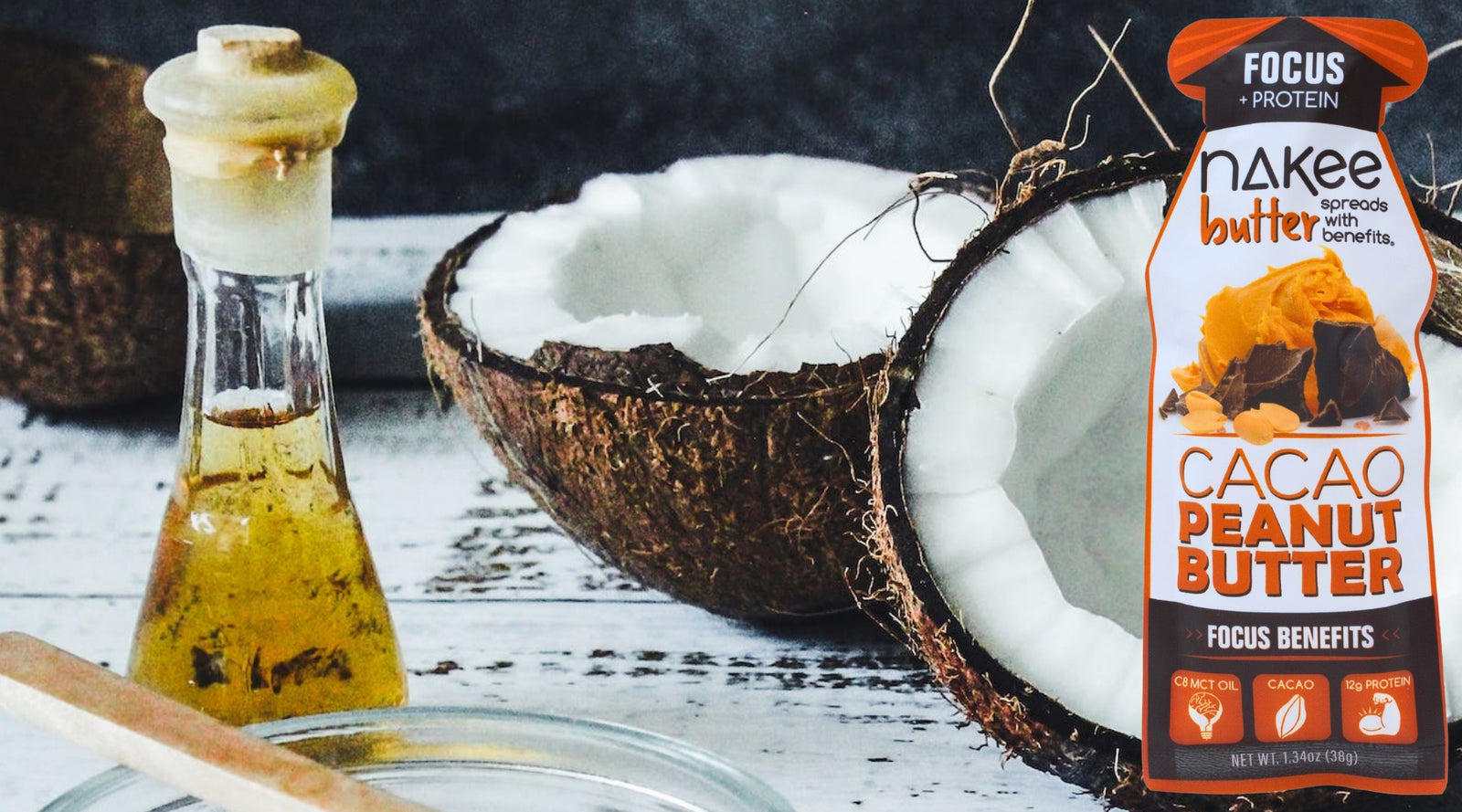Greetings, Nakee enthusiasts! Today, let's chat ingredients and dive into the deliciousness together, because knowing what's in you're eating is just as important to us as it is to you!
MCT oil first came to prominence in the health food sphere and beyond during the rise of the keto (high fat, low carb) diet. MCT stands formedium chain triglycerides, which means that these are shorter than thelong chainvariant more commonly found in food.
MCTs are more easily digested than their longer cousins; they are taken directly to the liver to be converted into ketones, which is the source of energy for the brain (which cannot store energy) and the muscles. Additionally, since MCTs are shorter than their longer-chain cousins, they do not have the same potential to be stored as fat for later.
Keeping triglyceride levels low is shown to help prevent the risk of cardiovascular disease, so MCTs are inherently better in that regard. Additionally, some research has shown that this oil helps reduce appetite; one study noted that “MCT oil reduced food intake acutely,” while another study noted its efficacy compared to olive oil in similar diets oriented toward weight loss.
Other scientists have argued that a different bodily mechanism is responsible for the appetite effect, although they do agree that MCT oil positively affects energy; it just does so “without a concomitant change in feelings of hunger.” MCT oil has been noted to help those with epilepsy who are managing their condition with keto; indeed, this is what that style of diet was first developed for about a century ago. MCT oil helps by adding additional carbohydrates to the diet while avoiding ketosis disruption.
It was noted during studies into these benefits and others, though, that MCT oil should be utilized in moderation, due to its potential to cause gastrointestinal side-effects, such as cramps and vomiting; this is only with very high amounts of consumption of the oil by itself, however, and has no effect in the amounts found in daily servings of Nakee Butter.
Regarding the type of MCT oil that we use, the prefix "C8" is also important, because it denotes a more powerful form of the ingredient. It stands for capyrlic acid, which is in itself commonly used as a dietary supplement. One of the first groups to notice the efficacy of MCT oil in general was actually the bodybuilding community, as they help expedite energy expenditure.
There are otherpotentialbenefits to MCT oil, but they are not confirmed as of yet. Some researchers believe that it may be useful in combating Alzheimer's disease and helping with the symptoms of diabetes, as well as assisting people on the autism spectrum with managing the effects of their condition. There is still more research required, and the science on MCT oil is steadily evolving as more studies are being performed.
Keep an eye on reputable scientific sources to learn more, and we'll definitely share updates as well! This is Brendan, signing off for now.

